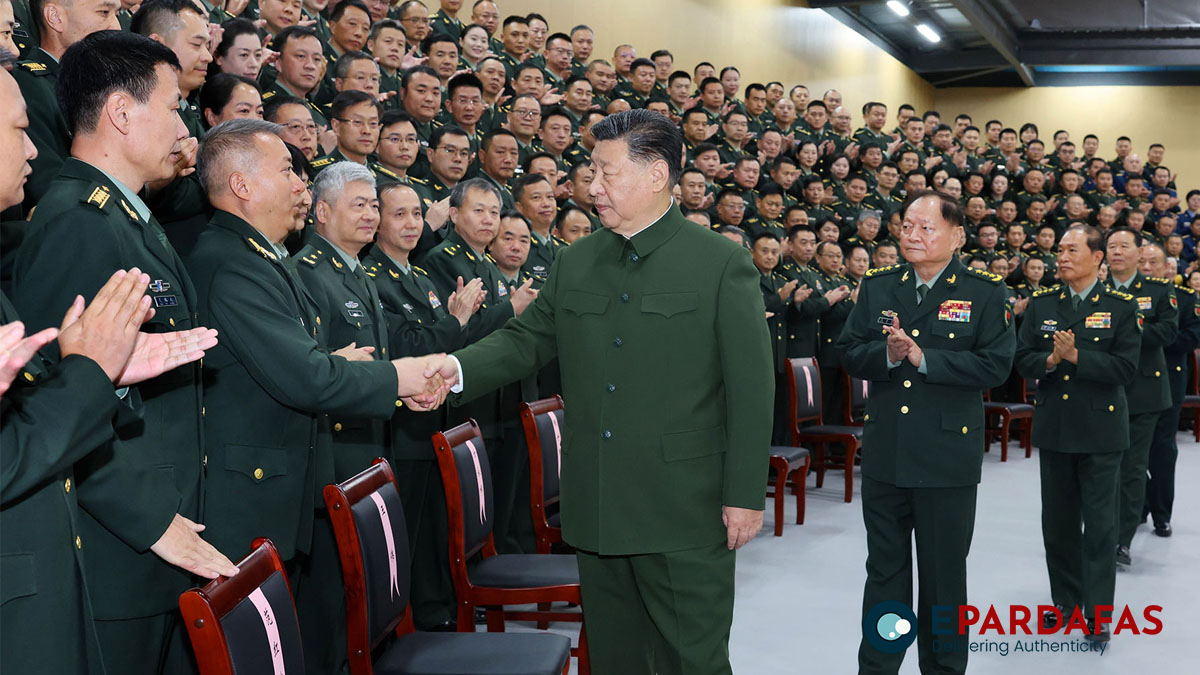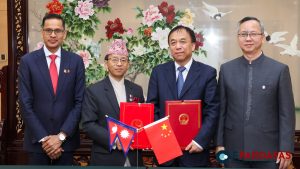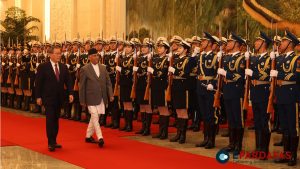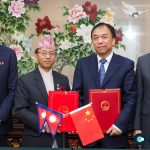
China’s Intensified Global Campaign Against Falun Gong: A Strategy of Disinformation and Legal Warfare

In October 2022, Chinese leader Xi Jinping convened a confidential meeting with senior officials overseeing political, intelligence, and influence operations, unveiling a new strategy to combat the Falun Gong spiritual group internationally. The meeting marked a pivotal moment in the Chinese Communist Party’s (CCP) decades-long campaign against Falun Gong, a group persecuted since 1999 for its growing popularity and adherence to the principles of truthfulness, compassion, and forbearance.
At the heart of this strategy is a push to utilize disinformation through social media influencers and Western media outlets, as well as leveraging the American legal system to target businesses and cultural organizations linked to Falun Gong practitioners. The revelations, reported by The Epoch Times, originate from Yuan Hongbing, a Chinese legal scholar in exile, who cited insiders with direct knowledge of the CCP’s plans.
The Origins of Xi’s New Directive
The secret meeting, held shortly before the CCP’s 20th National Congress where Xi secured an unprecedented third term, highlighted the regime’s frustrations over its failure to suppress Falun Gong abroad. Despite years of expending resources to undermine the group, Falun Gong-affiliated media such as The Epoch Times and New Tang Dynasty Television have grown into powerful platforms exposing CCP abuses on a global scale. Xi reportedly described the situation as “dire” and criticized past efforts as lacking coordination and strategic depth.
In response, Xi ordered a structural overhaul of the suppression campaign, placing the Central Political and Legal Affairs Commission in charge of coordinating efforts domestically and internationally. The Ministry of State Security (China’s spy agency) was tasked with spearheading operations abroad, supported by the United Front Work Department and the Ministry of Foreign Affairs.
A Strategy of Disinformation and Lawfare
Xi’s directives marked a shift in tactics. The CCP was to distance itself from overt state propaganda, opting instead for covert operations involving Western media and social media platforms. Xi reportedly emphasized the importance of using lawfare and disinformation to attack Falun Gong’s credibility, including smearing its founder, Li Hongzhi, and discrediting affiliated organizations like Shen Yun Performing Arts, a renowned cultural troupe that showcases pre-communist Chinese traditions.
Western legal systems became a focal point in the CCP’s strategy. The regime orchestrated lawsuits and legal harassment against Falun Gong practitioners and affiliated organizations, using these efforts to amplify its propaganda. For instance, Chinese operatives were implicated in a plot to bribe a U.S. IRS agent to launch audits against Falun Gong organizations, and frivolous environmental lawsuits were filed to stymie Shen Yun’s growth.
Increased Aggression Under New Leadership
Following the Party Congress, Xi appointed Chen Yixin, a loyalist with a history of overseeing harsh crackdowns, as head of the Ministry of State Security. Under Chen’s leadership, the ministry ramped up transnational repression. The establishment of an “anti-Falun Gong North America Office” further demonstrated the CCP’s focus on targeting practitioners abroad. Leaked documents revealed plans to deploy social media influencers and U.S.-based operatives to discredit Falun Gong and its cultural initiatives.
One notable case involved a social media influencer who collaborated with The New York Times to produce critical articles about Shen Yun. The influencer also filed complaints with U.S. authorities to instigate legal action against the performing arts group. Meanwhile, Chinese nationals operating covertly in the United States were arrested for spying on Falun Gong practitioners and gathering intelligence for potential legal assaults.
A Growing Alarm Among U.S. Lawmakers
The CCP’s intensified campaign has drawn sharp criticism from U.S. lawmakers. Representatives such as Scott Perry (R-Pa.) and Michael McCaul (R-Texas) have condemned the CCP’s efforts to extend its repression beyond China’s borders. Perry has introduced the Falun Gong Protection Act, which aims to hold Beijing accountable for forced organ harvesting, a practice documented as part of the CCP’s persecution of Falun Gong.
Other legislative efforts, such as the Countering China’s Political Warfare Act, propose sanctions against CCP-affiliated organizations like the United Front Work Department. Lawmakers are also calling for increased scrutiny of Chinese activities in the United States and harsher diplomatic responses, including the potential closure of consulates involved in espionage or transnational repression.
Implications for U.S.-China Relations
The CCP’s global campaign against Falun Gong underscores its willingness to exploit international systems to further its ideological goals. Xi’s aggressive strategy reflects a broader pattern of exporting authoritarian practices abroad, challenging democratic institutions and norms. For U.S. policymakers, the campaign is a stark reminder of the CCP’s transnational ambitions and the need for robust countermeasures.
As the CCP intensifies its efforts, the plight of Falun Gong practitioners continues to spotlight the regime’s broader human rights abuses. The growing awareness among lawmakers and the public may lead to stronger international action against Beijing’s repression, setting the stage for a critical confrontation between authoritarianism and freedom.












Comments